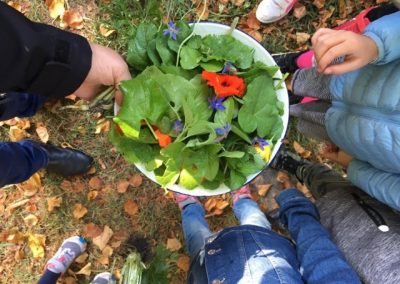Uncle Trolls Pantry
Uncle Trolls Pantry
We are: Uncle Trolls Pantry; We forage mushrooms and herbs from Norwegian forests. Most of what we forage we turn into products, and some we sell fresh to restaurants and end customers.; We also make courses to teach people about edible mushrooms and plants, and how to prepare them.
Our relation to ECS is given by a project in Linderud Gård Nærmiljøhage where we are experimenting with growing herbs, which is one of our expertise areas, along with knowledge about mushrooms.
Some of our achievements are becoming certified mushroom controllers in Norway; making a range of tasty products from what we forage in the local forests and arranging our first courses about foraging and preparing the catch.
It began as a hobby and with making products for family and friends. One step led to another and we began learning more about foraging from nature. The things we foraged became products like sauces, spices, pickles, pestos, chutneys and syrups. With small steps we experiment and find better and better recipes, and expand our markets. Though foraging is extremely time consuming and dependant weather conditions, experience and luck, it is also a very rewarding work. The forest is the best employer! (Even though the hourly pay is quite low…); Now after 4 years we deliver fresh mushrooms to some restaurants, and we have a range of different products within our brand.; We also started making courses and hope to expand that part of the business as it is a bit easier to plan though it is also dependant on the season.
Our core products are a range of sauces, spices, pickles, pestos, chutneys and syrups that we manufacture from foraged, grown and surplus food. We also provide educational services through courses and guided tours.
Contact:
Ole Reistadsvei 9c
1068, Oslo
Norway
[ess_grid alias="grid-1"]
Updates für diese Seite an EdiCitNet schicken
Wir freuen uns, wenn du uns Updates für diese Seite per E-Mail schickst.



